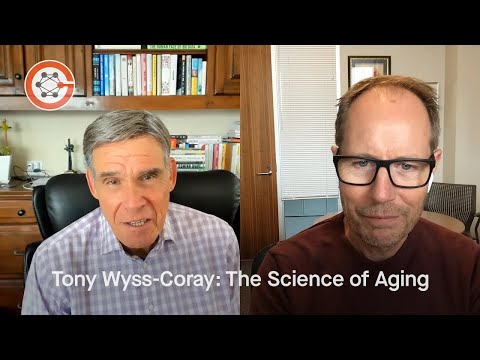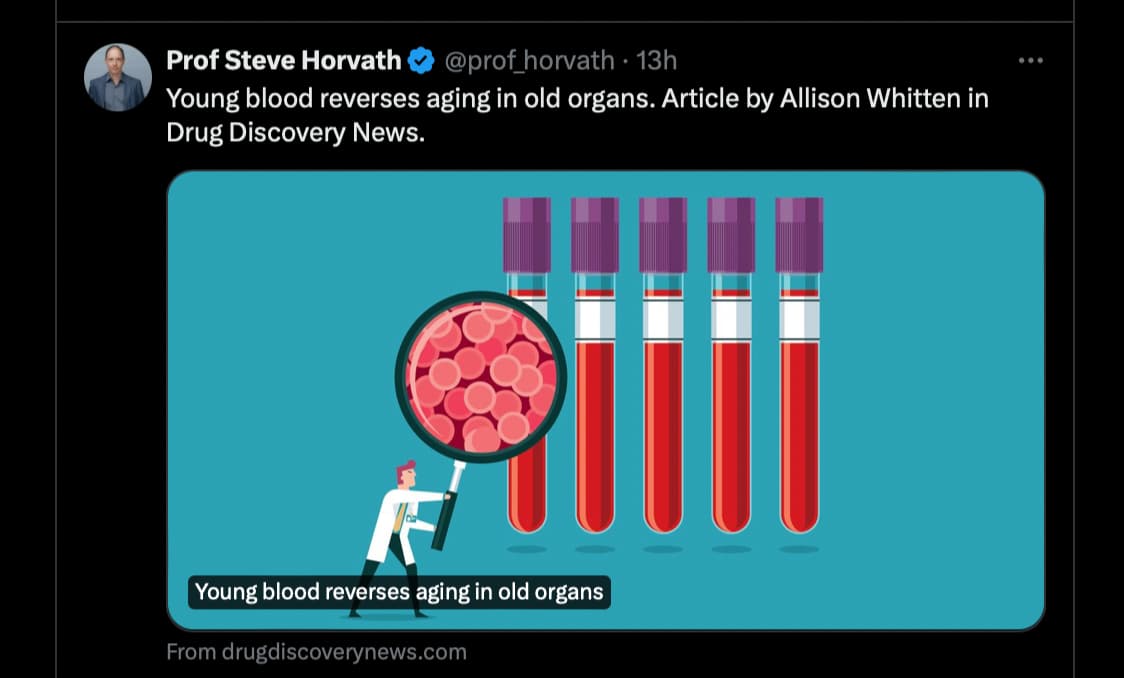Hello this is Eric Topol and for this edition of Ground Truths. I’m so delighted to have with me Professor Tony Wyss-Coray of Stanford, a Distinguished Professor at Stanford and who directs the Knight Initiative for Brain Resilience.
Related Reading:
Here: Blood test can reveal if you are at risk from organs aging prematurely
The new company that is commercializing this research: Teal Proteomics 2024 launch
Here: Organ-specific biological clocks are the latest tool for predicting and treating both chronic disease and overall aging
4 Likes
“There are lots of rich people who treat themselves with young plasma infusions, not just in this country,” said Wyss-Coray”
Someone should write a book on the Longevity Practices of the Rich and Famous.
I would assume this sort of thing has been going on since the dawn of time: bathing in the blood of virgins, the fountain of youth, etc.
Probably none have worked so far except for the possibility of a 1,000 year old Roman who stays out of the news.
3 Likes

